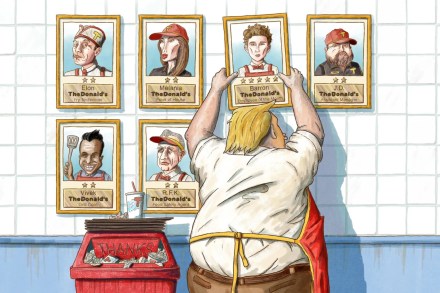In defence of the liberal elite
You can hear it already. Rising from the tents of the dejected Democrat camp comes the whimper of self-reproach. It’s all our fault. Liberalism created this monster. There’s a distinct whiff of mea culpa in the air. Nostra culpa, nostra maxima culpa for the alienation of half the American people. Donald Trump and his mob? It’s the fault of liberals for not feeling Trump-America’s pain. We fed their despair. Nigel Farage and his Reform party? Liberal Britain’s fault for being too stuck up to take Red Wall voters’ concerns seriously. Noses in the air (apparently), deaf to the woes of all those deplorables, and babbling about trans rights, preferred pronouns





















